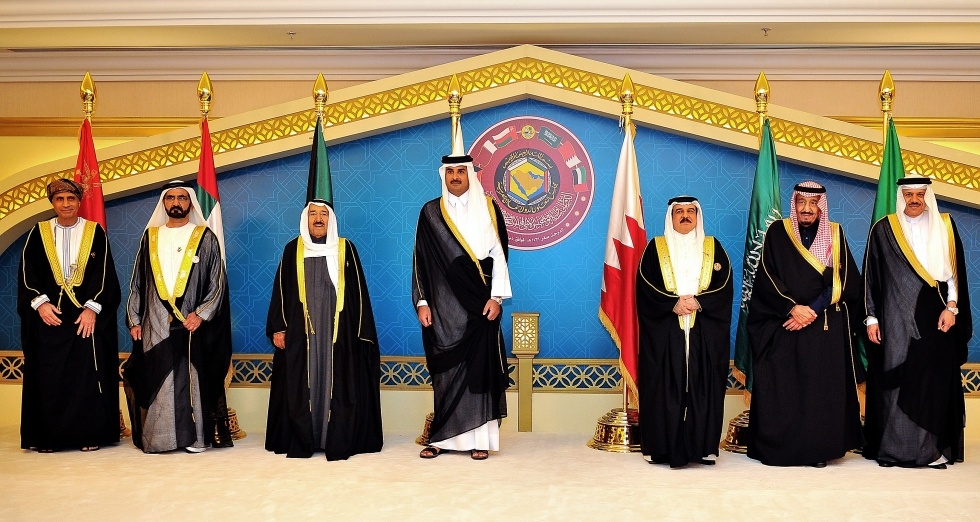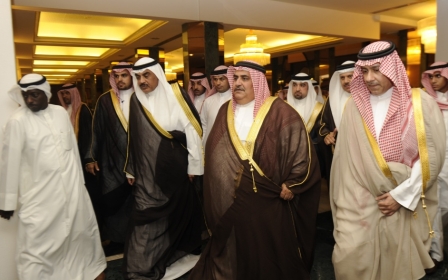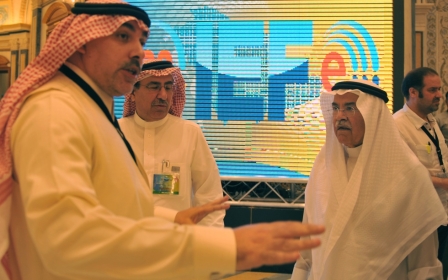Qatar supports 'strong Egypt' during GCC summit

Qatar was among the six members of the Gulf Co-operation Council (GCC) to throw their full weight behind Egypt’s President Abdel Fattah al-Sisi on Tuesday.
Representatives of Qatar, Saudi Arabia, the UAE, Oman, Bahrain and Kuwait met in Doha, capital of Qatar, in their first annual summit since apparently healing a months-long rift earlier this year.
The meeting, the 35th yearly summit held by GCC members, dealt with a wide variety of topics including the instability in Libya, the ongoing crisis in Syria and, topping the bill, how to deal with militancy in the region.
GCC members renewed their rejection of terrorism “in all its forms, whatever its causes,” and called for the resources of militants to be dried up.
Significantly, all members of the decades-old Gulf alliance used their concluding statement to proffer their full support for Egyptian President Abdel Fattah al-Sisi and his “roadmap” for the country.
Egypt is a key ally of countries including Saudi Arabia and the UAE and has received billions of dollars in financial aid from the Gulf heavyweights since the 2013 ousting of former President Mohammed Morsi.
However, Qatar’s stance towards Egypt is thought to have been behind a recent schism in the Gulf – its support for the Muslim Brotherhood, a group dubbed a “terrorist organisation” by Egypt in December 2013 and by Saudi Arabia three months later.
During a press conference following the release of the summit’s final statement, Qatar’s Foreign Minister stressed that Egypt and Qatar enjoy good relations.
Asked when the two countries would reconcile, Khalid Bin Mohammed al-Attiya told reporters: “there was no enmity to begin with for there to be a reconciliation.”
After pledging his support for President Sisi, Attiya went on to stress the importance of Egypt as a regional player.
“The presence of a strong Egypt is something that serves all Arabs, including the GCC states.”
Houthi uprising a 'factional foreign intervention'
Turning to recent events in close neighbour Yemen, the GCC leaders warned that the recent armed takeover by Houthi rebels represented a threat to regional stability.
The officials confirmed that "any threats to the security and safety of Yemen and its citizens is a threat to regional security and stability, and interests of the people."
Ministers dubbed the Houthi uprising, during which Houthi rebels advanced from their mountainous stronghold to seize the capital in September, "regretful," expressing their "serious concern at the threats faced by the Yemeni government and its institutions."
"The GCC states will not stand idly by in the face of factional foreign intervention, as Yemen's security and the security of the GCC states are one and the same."
Yemeni authorities have long accused the Houthis of enjoying backing from Iran.
Moves towards Gulf 'union'
Ahead of the summit, Kuwaiti emir al-Sheikh Sabah al-Ahmed al-Sabah called for a special council to be established to "study the topic of a [Gulf] union" from various standpoints.
Sabah stressed that members of the GCC are "obligated to create strong foundations preparing us to enter a new phase of union."
During their meeting, leaders agreed to establish a joint naval force between the member states.
The summit's closing statement did not specify where the base would be headquartered - however, it is widely expected that that base will be sited in Bahrain.
In a sign that the states are drawing closer to establishing a unified police force, widely dubbed the "Gulf Interpol," the leaders used their final statement to welcome "the achievements that have been realised in the security field, including the start of work on a Gulf police force with its headquarters in Abu Dhabi in the UAE."
Calls to recognise 'legitimacy' of Libya's elected parliament
In their concluding statement, the leaders stressed the importance of finding a political solution to Syria’s war, in line with decisions that came out of the 2012 international conference on Syria held in Geneva.
The group also backed calls for dialogue talks to be held in Libya as soon as possible. Peace talks in crisis-ridden Libya planned for Tuesday were postponed by the UN on Monday night after controversy over who would be allowed to attend.
Speaking at a press conference after the summit, GCC general secretary Abdel Latif Bin Rashid Zayani called on all sides in Libya’s conflict to “recognise the legitimacy of the elected House of Representatives.”
New MEE newsletter: Jerusalem Dispatch
Sign up to get the latest insights and analysis on Israel-Palestine, alongside Turkey Unpacked and other MEE newsletters
Middle East Eye delivers independent and unrivalled coverage and analysis of the Middle East, North Africa and beyond. To learn more about republishing this content and the associated fees, please fill out this form. More about MEE can be found here.




